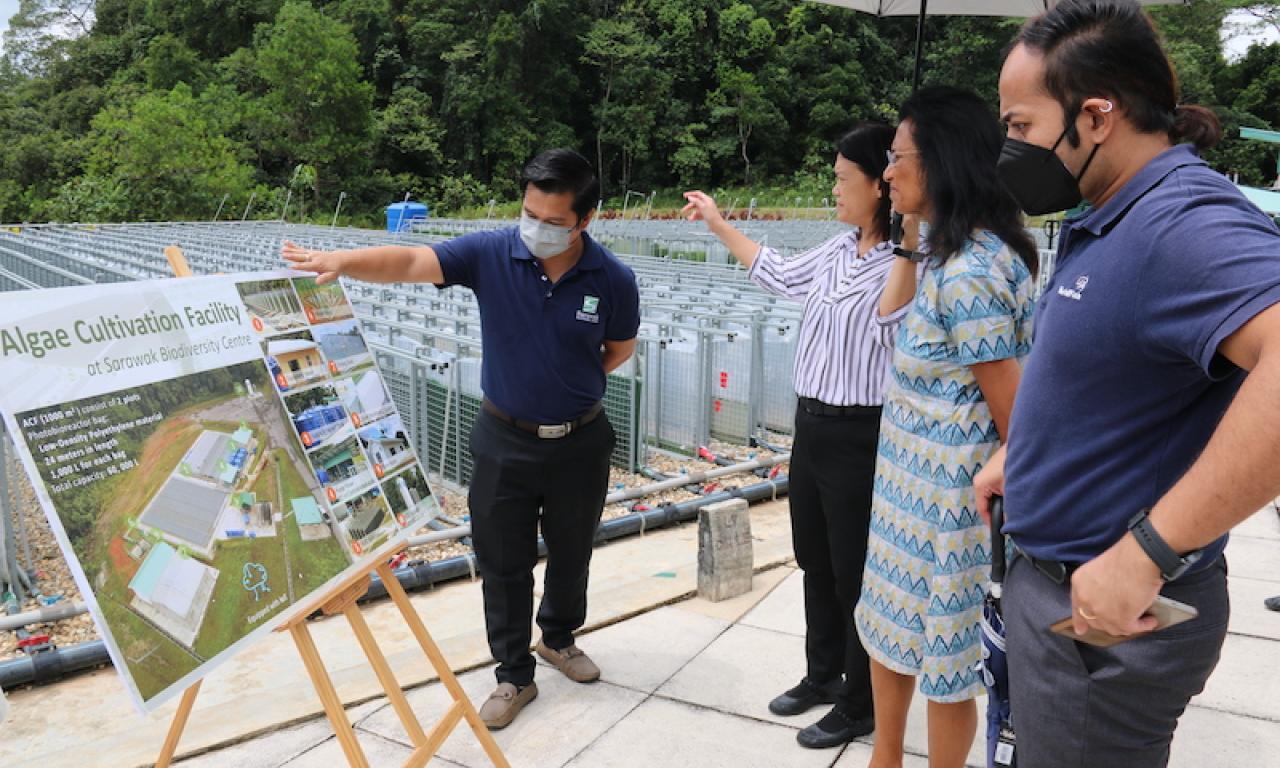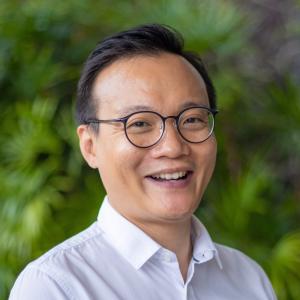
- WorldFish recently visited several institutions in East Malaysia to explore areas of collaboration, particularly on seaweeds and aquatic food systems.
- Discussions among the various East Malaysian institutions have unearthed the many potential areas of collaboration for the mutual benefit of all parties in advancing the Sustainable Development Goals, particularly Goal 14: Life below water with memorandums of understanding to follow to lay the foundation for collaborations to come.
East Malaysia, separated from Peninsular Malaysia by the South China Sea, comprises the Borneo states of Sabah and Sarawak. With a landmass that is 50 percent larger and a coastline 40 percent longer than Peninsular Malaysia, East Malaysia has a lot to offer in terms of biodiversity.
The first Malaysian university that WorldFish collaborated with was Universiti Malaysia Sabah (UMS) back in 1999. Then, WorldFish provided operational guidelines to facilitate the implementation of genetic enhancement of Nile tilapia and utilization of the first filial generation (F1) crossbred clones through the Reefs at Risk in Southeast Asia initiative.
Recently, a delegation led by Shakuntala Thilsted, WorldFish’s global lead for nutrition and public health visited the Borneo Marine Research Institute (BMRI), one of the key research institutes at UMS. BMRI being well-known for its research on seaweeds, among other aquatic foods, WorldFish explored the possibility of working together to scale the multiple benefits of seaweeds to low- and medium-income countries across Africa, Asia and the Pacific.
Harnessing the multiple benefits of seaweed
Seaweed can offer a cost-effective and readily available solution to the food and nutrition insecurity experienced by low- and medium-income countries. Rich in protein, minerals and essential fatty acids, seaweed is considered a superfood that offers multiple health benefits to humans and has the potential of tackling the triple burden of malnutrition. It is inexpensive to cultivate, simple to harvest and requires minimal external inputs.
Additionally, it provides those who are most vulnerable to the consequences of climate change with sustainable, equitable and resilient means of subsistence and functions as an important carbon sink by sequestering vast quantities of carbon dioxide.
Thilsted, the 2021 World Food Prize Laureate, also held discussions with SEADLING, a seaweed biotech company based in Kota Kinabalu, Sabah. The company utilizes innovative bio-manufacturing technology to transform sustainably farmed seaweed into high-quality and nutrition-rich products.
SEADLING employs a circular economy model in improving the livelihoods of coastal communities through seaweed farming. It also takes a human-centered approach to designing products that lift the seaweed supply chain by empowering women to build careers around seaweed farming.
Unearthing the untapped potential of Borneo’s biodiversity
WorldFish also visited the Faculty of Resource Science and Technology (FRST) at Universiti Malaysia Sarawak (UNIMAS) in the neighboring Borneo State of Sarawak as part of WorldFish’s excursion to East Malaysia. Its Real Living Lab (RLL) is a platform to showcase the rich biodiversity of Borneo, the world’s third-largest island.
FRST is embarking on developing sustainable aquaculture practices through its research as well as providing coursework for postgraduate studies. A center for precision aquaculture and bioresource technology is currently being constructed to spearhead work on transforming aquatic food systems to be more sustainable and resilient in a changing climate for the millions who depend on them for food, nutrition and livelihood.
As part of WorldFish’s excursion to East Malaysia, WorldFish toured the facilities of Sarawak Biodiversity Centre (SBC), a state government agency entrusted to conduct biotechnology research and development on Sarawak’s biological resources.
Thilsted was briefed about SBC’s algae cultivation facility – one of the largest in Southeast Asia – that grows microalgae that are currently used in feeds and human health supplements, in addition to biofuel and biomass.
Discussions among the various East Malaysian institutions have unearthed the many potential areas of collaboration for the mutual benefit of all parties in advancing the Sustainable Development Goals, particularly Goal 14: Life below water with memorandums of understanding to follow to lay the foundation for collaborations to come.
